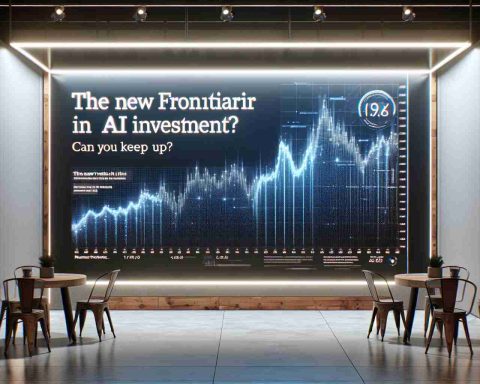Advanced AI Technologies Redefining Industries
Cutting-edge artificial intelligence technologies are reshaping industries around the globe. These innovations are pushing the boundaries of what AI can achieve, moving beyond simple tasks to complex problem-solving and content creation. Companies are now leveraging large-scale generative AI models to drive progress, leading to significant societal and economic changes.
Rapid Development of Next-Generation AI
The evolution of AI from basic models to intelligent agents marks a pivotal shift in technological advancement. These AI agents no longer rely on fixed rules but continuously learn and adapt using massive datasets. The rise of large-scale generative models like ChatGPT and Dall-E is revolutionizing the AI landscape, albeit requiring significant computational resources and energy consumption.
Inclusive Participation in AI Innovation
Ensuring broad participation in the development of large generative AI models is crucial for the future of AI technologies. Encouraging small and medium enterprises, individual developers, and researchers to engage in this process is key to unlocking the full potential of AI innovations and applications.
The Role of AI in Smart Manufacturing and Beyond
Companies like Foxconn are at the forefront of utilizing generative AI to enhance smart manufacturing, smart electric vehicles, and smart cities. By integrating AI into their operations, they are revolutionizing production processes, driving innovation, and improving service quality for customers worldwide. Embracing AI technologies in various sectors promises a future filled with unprecedented opportunities and advancements.
The Implications of Advanced AI Technologies on Society
As advanced AI technologies continue to permeate various industries, questions arise regarding their broader impact on society. How will the widespread adoption of AI affect employment patterns, privacy concerns, and ethical considerations? What are the key challenges associated with integrating AI into everyday life, and how can they be addressed to ensure a positive future for all?
Employment Displacement and Skills Gap
One of the most pressing questions related to advanced AI technologies is their potential to displace human labor across multiple sectors. While AI can streamline processes and increase efficiency, there is a real concern about jobs being rendered obsolete. How can societies prepare for this shift in workforce dynamics, and what steps should be taken to bridge the skills gap created by automation?
Privacy and Data Security Concerns
With the proliferation of AI systems that rely on vast amounts of data, the issue of privacy and data security becomes paramount. How can individuals retain control over their personal information in a world where AI algorithms continuously analyze and process data? What policies and regulations need to be implemented to safeguard privacy rights while still enabling technological progress?
Ethical Implications and Bias in AI
Another crucial aspect of advanced AI technologies is the potential for ethical dilemmas and biases in decision-making processes. How can AI systems be designed to prioritize fairness, transparency, and accountability? What measures can be taken to mitigate bias in algorithms and ensure that AI applications do not perpetuate existing societal inequalities?
Advantages and Disadvantages of AI Integration
While the benefits of leveraging advanced AI technologies are extensive, there are also significant drawbacks that must be considered. Advantages include increased efficiency, enhanced productivity, and improved decision-making processes. However, disadvantages such as job displacement, ethical concerns, and potential misuse of AI require careful evaluation and strategic planning.
In conclusion, the impact of advanced AI technologies on the future is multifaceted, presenting both exciting opportunities and complex challenges. By addressing key questions, acknowledging potential pitfalls, and proactively engaging in discussions surrounding AI ethics and regulations, society can strive to harness the transformative power of AI in a responsible and sustainable manner.
For more insights on AI’s societal implications, visit Intel.
















